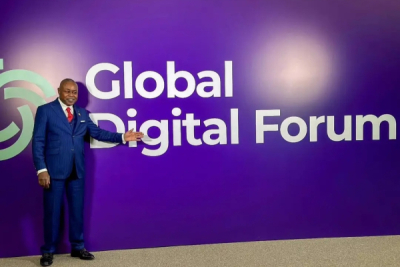Ghana’s digital economy is growing rapidly, with increasing reliance on fintech, e-commerce, and digital transactions. Strong legal frameworks are essential to protect businesses and consumers from cyber threats and ensure compliance with international data protection standards.
Ghana’s Ministry of Communication, Digital Technology and Innovations (MoCDTI) has announced plans to introduce 15 new digital laws aimed at strengthening cybersecurity, data protection, and digital economy regulation. The announcement was made on June 8 during a two-day workshop with Parliament’s Select Committee on Information and Communications, where the Ministry reaffirmed its commitment to transparency and collaboration in shaping the country’s digital future.
The proposed laws will focus on several critical areas, including cybersecurity regulations, data protection, and digital economy governance. As cyber threats continue to evolve, Ghana needs a robust legal framework to safeguard businesses and individuals from digital risks. The cybersecurity laws will enhance protections against cyberattacks, ensuring compliance with global security standards and reinforcing national resilience against digital threats. Additionally, the data protection laws will strengthen privacy rights, regulating how personal and corporate data is collected, stored, and used. With the increasing reliance on digital transactions, these measures will provide citizens with greater control over their information while ensuring businesses adhere to ethical data practices.
Another key aspect of the legislative agenda is the governance of Ghana’s digital economy. As fintech, e-commerce, and digital transactions become more prevalent, clear policies are needed to regulate these sectors effectively. The new laws will establish guidelines for digital financial services, ensuring consumer protection and fostering innovation.
Institutional reforms are also a major focus of the proposed legislation. One of the most significant changes discussed at the workshop is the transformation of the National Information Technology Agency (NITA) into a purely regulatory body. Currently, NITA operates both as a regulator and a service provider, which can create conflicts in governance. Under the new framework, its service-provider functions and government IT assets will be transferred to a separate entity, ensuring a clearer distinction between regulation and service delivery. This transition is expected to improve efficiency, streamline operations, and enhance oversight of Ghana’s digital infrastructure.
With Ghana’s digital economy expanding rapidly, these laws are essential for protecting citizens and businesses from cyber risks, encouraging investment in technology, and ensuring compliance with international data protection standards. The Ministry’s proactive approach signals a strong commitment to fostering innovation while maintaining security and accountability in the digital space.
The proposed laws will be rolled out in phases for parliamentary review, allowing for thorough discussions and stakeholder engagement. As Ghana positions itself as a regional digital leader, these legislative reforms will play a crucial role in shaping the country’s tech-driven future, ensuring that policies and infrastructure developments support sustainable growth and innovation.
Ghana has been actively developing laws to regulate and strengthen its digital economy. These laws aim to enhance consumer protection, regulate digital transactions, and ensure compliance with international standards. The country has existing digital laws such as the Electronic Transactions Act (2008), which grants legal recognition for electronic records, and the Payment Systems and Services Act (2019), which regulates digital financial services. The Cybersecurity Act (2020) established the Cybersecurity Authority, ensuring national security against cyber threats.
Hikmatu Bilali



















